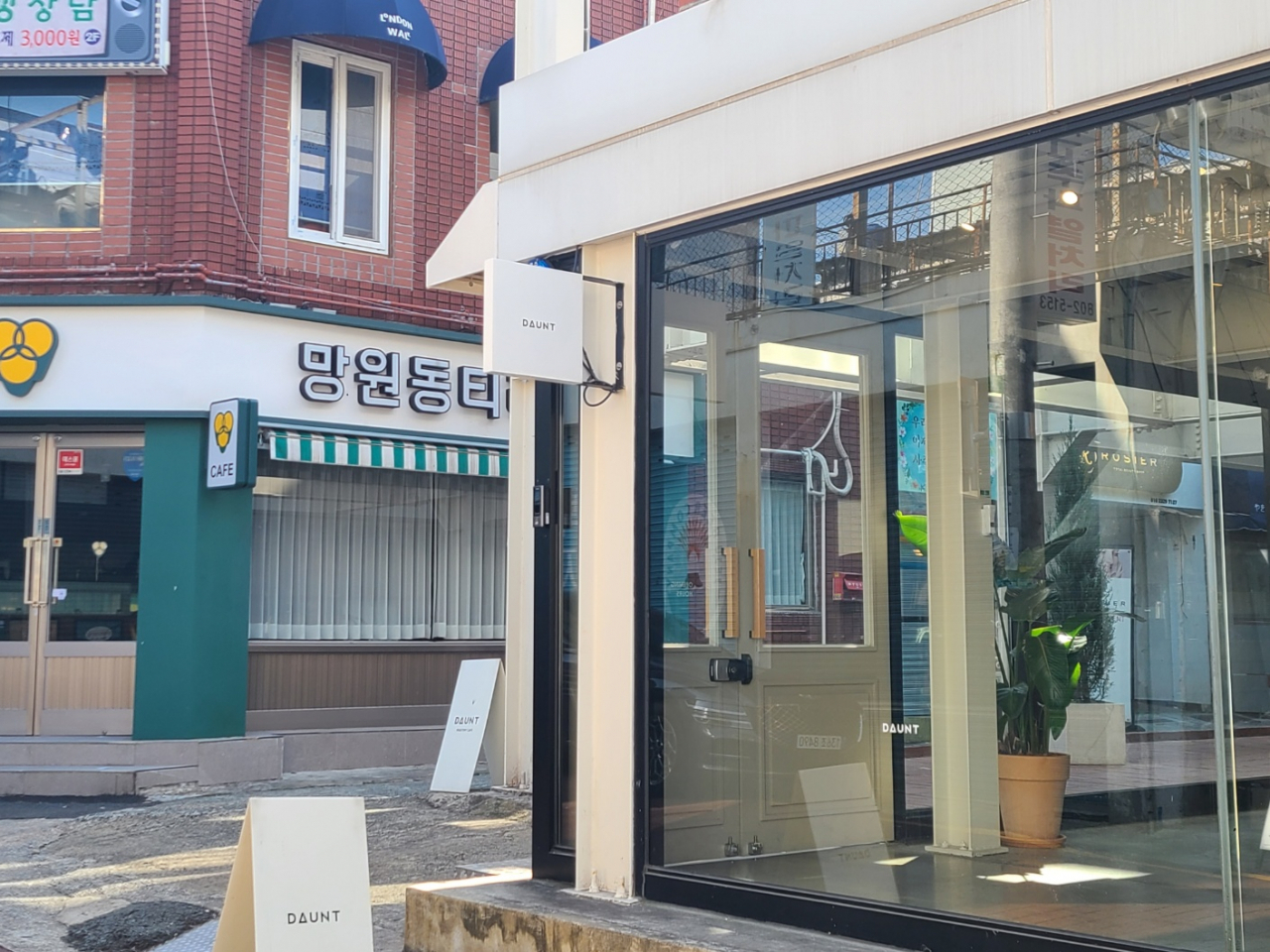 |
Jeonpo Cafe Street, located near the commercial district of Seomyeon in Busan (Jung Min-kyung/The Korea Herald) |
BUSAN -- South Korea’s southeastern port city of Busan is a popular holiday destination for those seeking to enjoy quality seafood and relax at the beach. But in recent years, tourists have been flocking to the city to get a taste of something different -- coffee.
Global coffee competition winners are opening up cafes in Busan, with a shared goal of transforming the city into the next coffee hub like the Australian city of Melbourne. At the forefront of the movement is barista Jeon Joo-yeon, the first Korean to win the World Barista Championship in 2019 and the current co-head of Momos Coffee.
“Busan has so much potential to become the next coffee hub,” she told The Korea Herald at Momos
Coffee’s second branch in Yeongdo district, which consists only of islands.
“The city is attractive to baristas because of the space it offers. The scenery and the story of Busan, combined with coffee, can prove that coffee is more than just caffeine.”
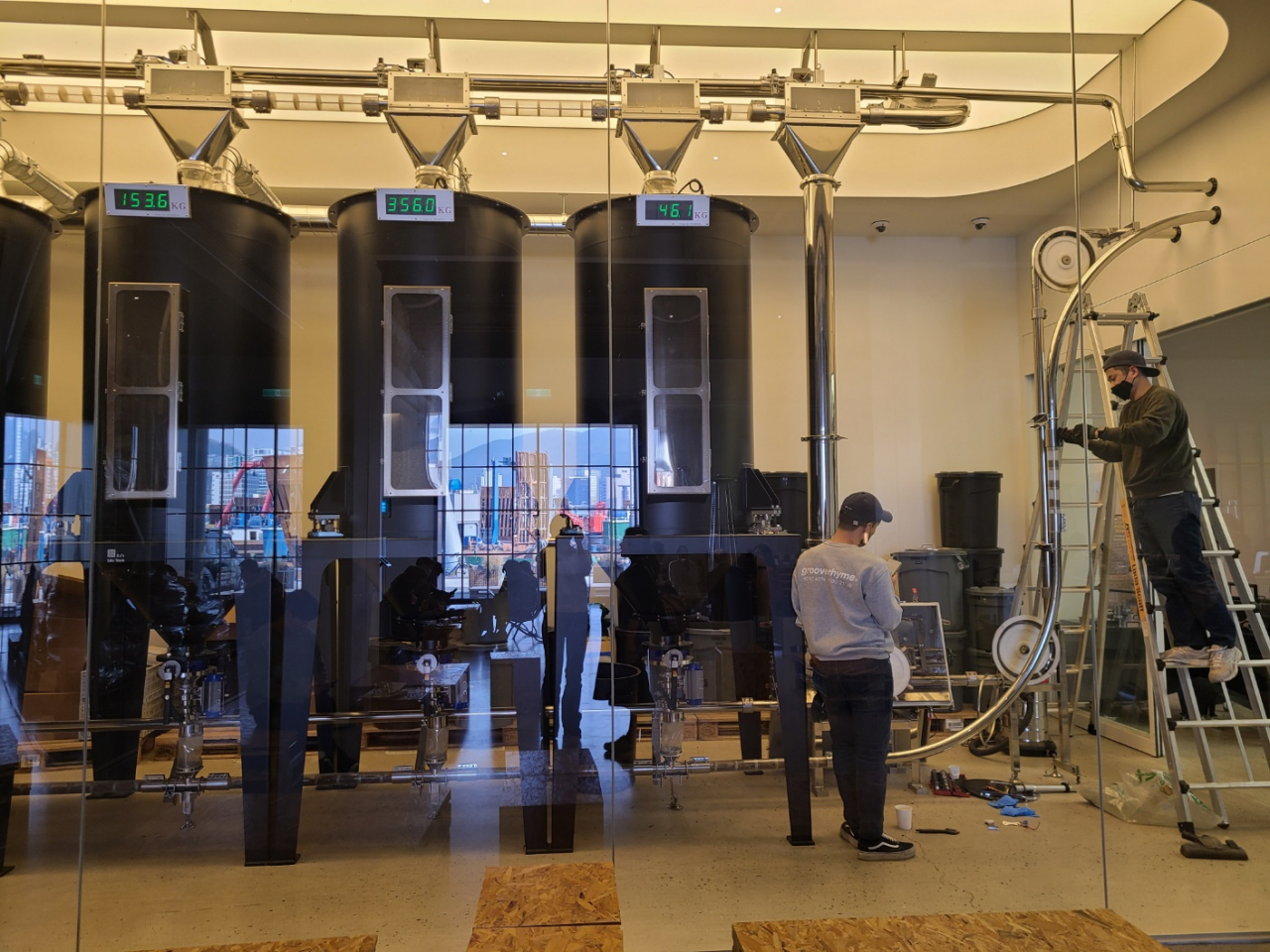 |
Momos Coffee's second branch in Yeongdo-gu, Busan (Jung Min-kyung/The Korea Herald) |
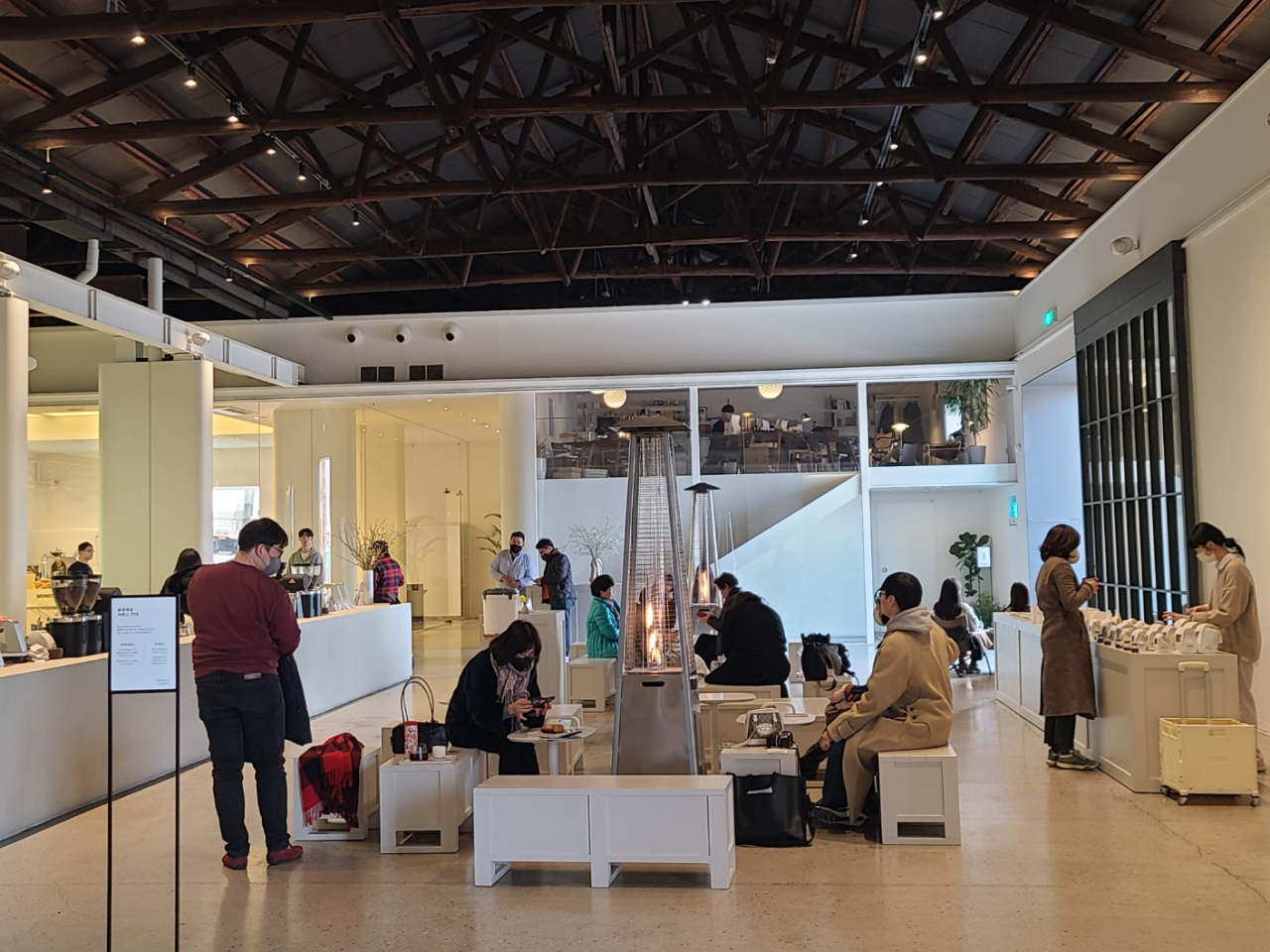 |
Momos Coffee's second branch in Yeongdo-gu, Busan (Jung Min-kyung/The Korea Herald) |
Momos Coffee’s Yeongdo branch, opened in late 2021, is a manifestation of Busan’s potential as a coffee destination.
Once visitors step into the cafe -- an 1,800 square-meter space repurposed from an old factory near a dock -- they can see the entire coffee value chain unfold before their eyes. Momos has its own giant silo systems, which are smart solutions to store coffee beans.
The large doors and windows to the cafe have dual roles. At first, it allows visitors an inside look into a sustainable coffee chain when they enter the venue. After they receive their coffee and turn around, they are greeted by a scenic view of colorful ships docked in Yeongdo.
“The amazing thing about Busan is that many of its Korean-style buildings from the early 1900s are preserved. As a quintessential logistics hub, it is able to produce this unique scenery that can’t be seen in any other part of the world,” Jeon explained.
“It’s also among the cities that can provide the luxury of relaxing with a cup of coffee, unlike some cultures where coffee is all about business and caffeine.”
Busan’s rise in the coffee scene, however, is mainly thanks to its young and vibrant community of baristas who compete among themselves with passion and devotion to the drink.
One of Jeon’s colleagues at Momos is Charlie Chu Kyoung-ha, who won the World Cup Tasters Championship in 2021.
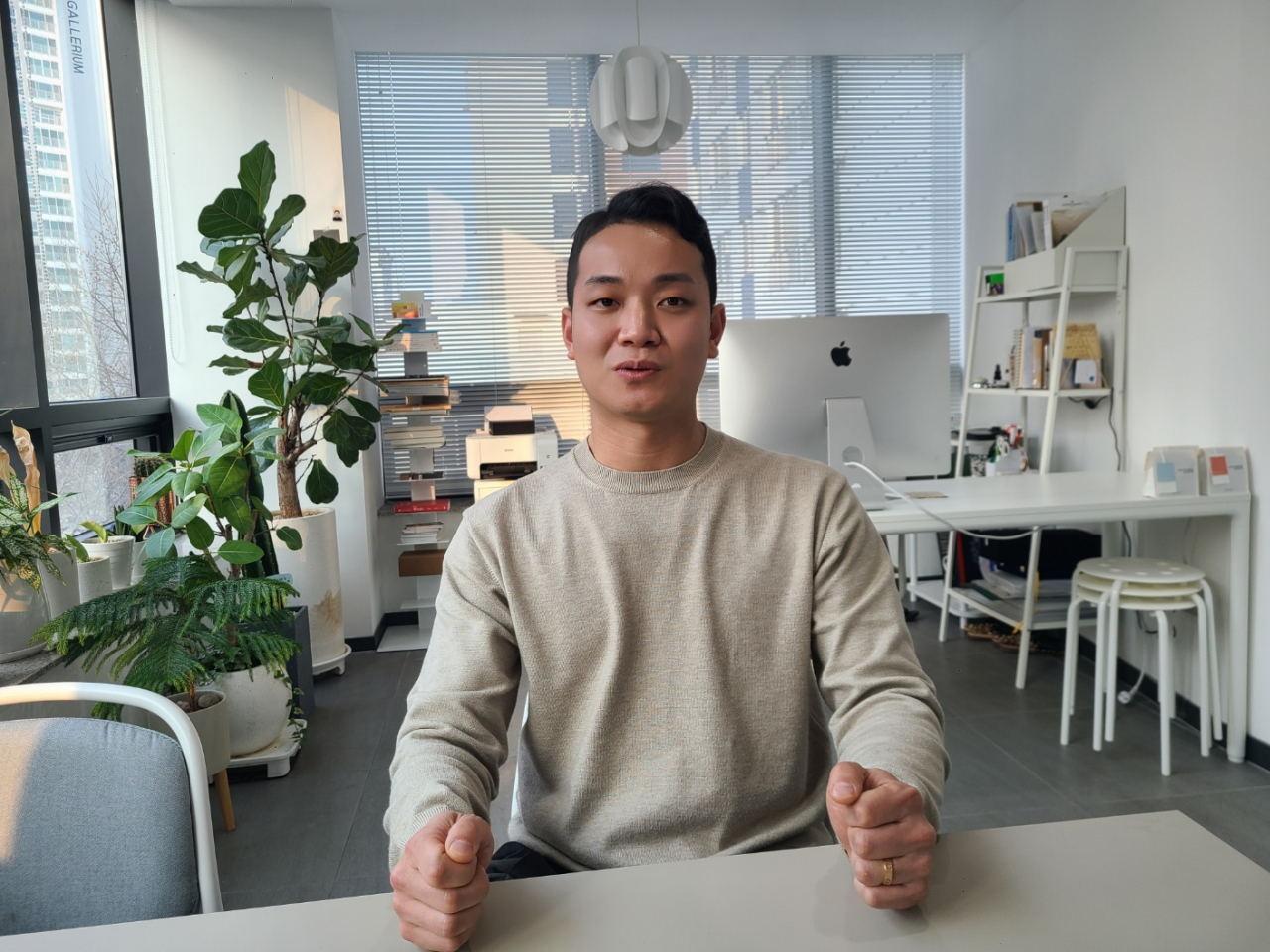 |
Moon Heon-gwan, barista and owner of Month Coffee in Busan (Jung Min-kyung/The Korea Herald) |
Another barista getting in on the act is Moon Heon-gwan, the winner of last year’s World Cup Tasters Championship held in Milan. The 31-year-old barista heads his own cafe called Month Coffee, which recently relocated to Busan’s commercial district of Seomyeon from a quieter part of the city.
“The baristas here have a common goal of turning Busan into a coffee hub,” Moon said.
“The interest in specialty coffee has been growing recently, and Busan continues to develop as a global tourist spot -- the synergy is great,” he added.
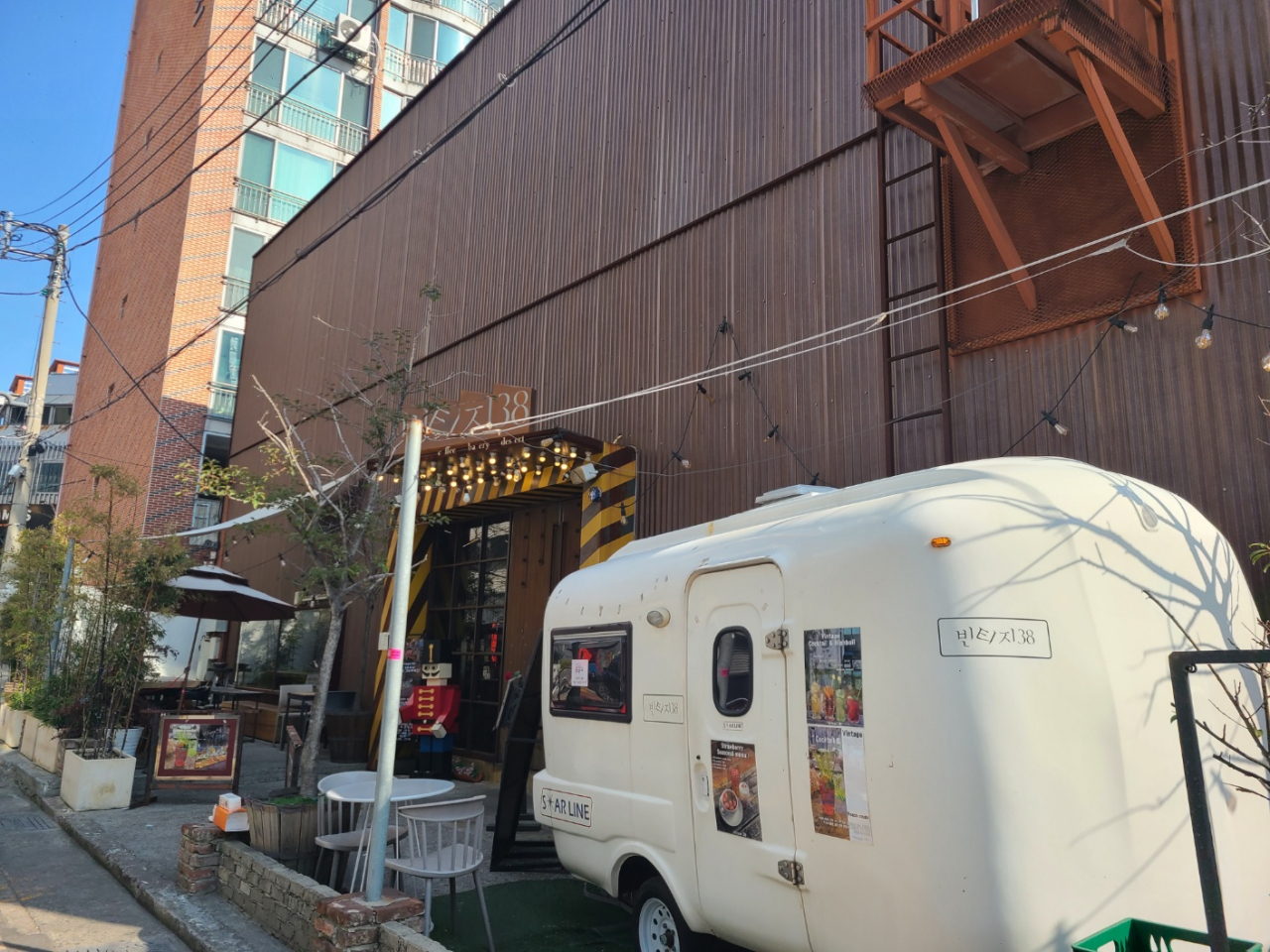 |
Jeonpo Cafe Street, located near the commercial district of Seomyeon in Busan (Jung Min-kyung/The Korea Herald) |
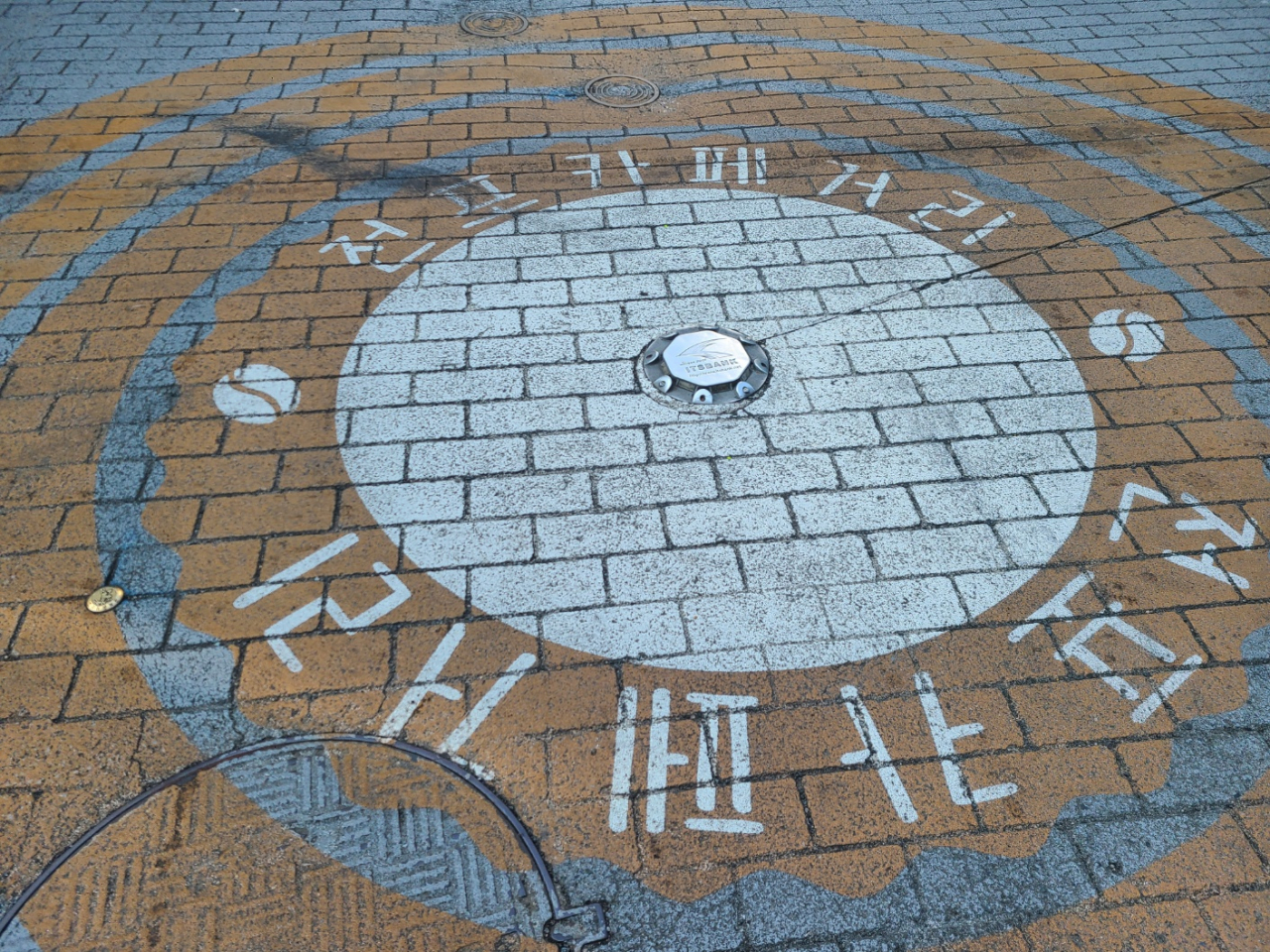 |
Jeonpo Cafe Street, located near the commercial district of Seomyeon in Busan (Jung Min-kyung/The Korea Herald) |
Jeonpo Cafe Street
Though Seomyeon was Busan’s key shopping district for decades, young people had begun losing interest in the area because of its outdated shops. However, with new cafes opening up in back alleys and the Busan Metropolitan Government’s decision to designate the area a “cafe street,” the district gained a breath of fresh air.
The cluster of colorful, trendy cafes that offer different kinds of freshly brewed coffee to visitors has been grabbing the attention of the global media and tourists alike. And baristas working in the area are fully aware of that.
“I’d love to keep working in Busan,” said Lee Ji-won, a barista working at Daunt Coffee, located on the cafe street.
Lee, who claims to have won multiple awards at local latte art contests, said that Busan’s relaxed mood provides people with chances to appreciate coffee as a form of art.
“I want to become a barista who gives people the experience of enjoying coffee as an art form and help them leave the city with great memories,” he said.
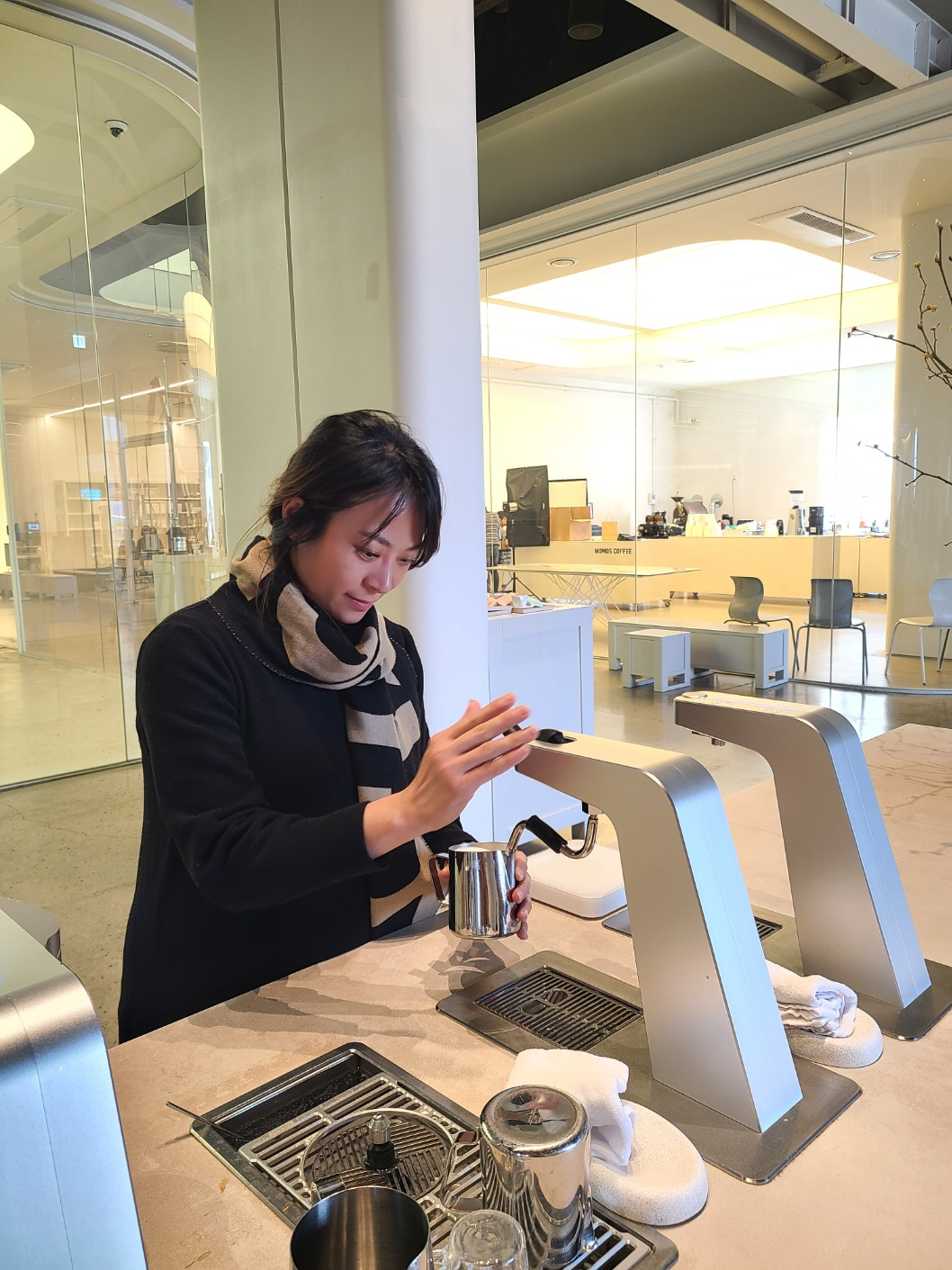 |
Barista Jeon Joo-yeon jointly heads Momos Coffee. (Jung Min-kyung/The Korea Herald) |
Coffee complications
While Busan’s future as the "next Melbourne” may seem rosy, coffee professionals shed light on several hurdles the city faces to get there, including its lack of infrastructure.
“Busan has so many attractive features, but compared to Melbourne, where people can walk along the coast with a coffee in their hands, the city lacks pedestrian walkways where they can stroll safely with a drink,” Jeon of Momos Coffee explained.
“It would be safe to say that the city is at a very early stage of its development as a coffee hub," she added.
On top of this, Busan is not a city where coffee beans are actually produced, nor one where people are willing to open their wallets for a cup of pricey specialty coffee every day, Month Coffee's Moon added.
"South Korea's coffee consumerism is very polarized," Moon said.
In Melbourne, drinking coffee at a specialty coffee shop is a daily routine for many locals, regardless of their income, he said. However, in Korea people are likely to settle for lower quality, low priced coffee on a daily basis rather than splurge on specialty coffee.
"But overall, the quality of Korea's coffee market has improved immensely in the past few years and the baristas in Busan have been trying to adopt sustainable ways to brew coffee. I believe we'll eventually reach the goal of becoming a coffee hub."







![[Today’s K-pop] Blackpink’s Jennie, Lisa invited to Coachella as solo acts](http://res.heraldm.com/phpwas/restmb_idxmake.php?idx=644&simg=/content/image/2024/11/21/20241121050099_0.jpg)